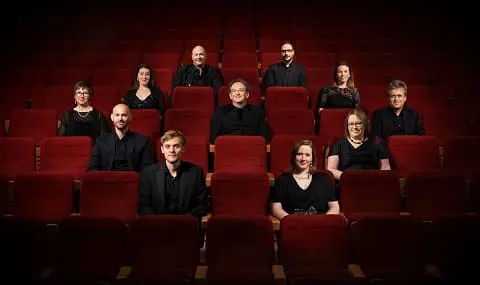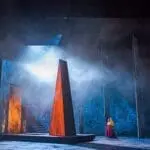This, and the striking opening of the first piece, Palestrina’s motet Laudate pueri, set me ruminating about nature of an ‘ensemble
sound’, and although the following tangential digression might be a little
indulgent, it is not irrelevant to my experience and review of the music
performed.
The Tallis Scholars’ website lists the following six personnel as ‘The
Singers’: soprano Amy Haworth (who first sang with the group in 2005),
soprano Emma Walshe (2010), alto Caroline Trevor (1982), tenor Steven
Harrold (1993) and basses Robert Macdonald (1994) and Tim Scott Whiteley
(2007), only four of whom were performing on this occasion. Any
long-standing ensemble, instrumental or vocal, will inevitably have a
flexible constitution over time: indeed, Harrold’s first sustained spell
was from 1996 to 2001 (in 1998 he replaced John Potter in the Hilliard
Ensemble, the members of which remained unchanged from then until the group
disbanded in 2014) and has recently re-joined the Tallis Scholars. And, the
distinctive and defining ‘sound’ of a group will principally be shaped by
the predilections and practices of its director or conductor. Peter Philips
founded The Tallis Scholars in 1973 and has now appeared in almost 2000
concerts with the ensemble.
Photo credit: Nick Rutter
Source: Opera Today















